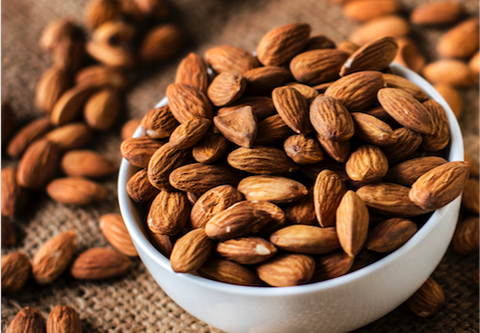
When it comes to whey vs. plant-based protein, is one better than the other? Each protein option packs their own incredible health benefits to help you meet your goals. But knowing which makes the best choice for your diet may be more complicated.
And that’s because plant-based options aren’t only for vegans and vegetarians.
To sort through the confusion, this guide will cover:
- The science-backed benefits of whey protein
- The perks of using plant-based protein
- Why you may want to supplement with both(!)
By the end of this quick guide, you’ll have all the information you need to decide which protein source is right for you.
Since whey protein is the most common and widely used, we’ll begin with an overview of why it’s dominated for so long.
Science-Backed Benefits of Whey Protein Isolate

Whey Protein Isolate Is a Complete Protein Source
Because whey protein contains all nine essential amino acids, it’s considered a complete protein source similar to eggs and chia seeds.
But it’s even more incredible because a typical serving of whey can yield anywhere from 18g to 23g of protein.
- Preserve muscle mass during calorie restriction (i.e., dieting)
- Prevent weight gain (especially excess fat)
- Feel full and satiated so you’re not tempted to overeat
You’ll also find specific amino acids known as branched chain amino acids, or BCAAs, in whey.
Whey Protein Packs BCAAs for Muscle Growth and Strength
BCAAs can aid in muscle building, strengthen your immune system, and improve your endurance[*].When used as a pre- or post-workout snack, whey protein can also facilitate lean muscle growth and increases in muscle strength[*].
"Researchers from one study even discovered a 33% decrease in medical visits when Marines started supplementing with whey protein[*]." The Marines also noticed decreased soreness and less joint pain once they started supplementing.
You can take advantage of these perks too -- as long as you know which whey protein to lean on.
Whey Protein Isolate vs. Concentrate
Not all whey protein options are created equally.
Whey protein isolate is considered the gold standard since it contains less fat, fewer carbohydrates, and more protein than whey concentrate. That’s why we prefer using whey protein isolate in our bars. But that’s not our only protein of choice, as you’ll learn next.
The Benefits of Plant-Based Protein

While whey is an incredible protein source, plant-based options may be just as effective.
- Boosted energy levels. Peas are bursting with lysine. This facilitates carnitine, which converts fatty acids into usable energy molecules.
- A bump in iron. With an increase in iron, you’ll be able to maximize your energy and increase athletic performance.
- More fiber. Supplementing with pea protein provides your body with soluble fiber, which can be useful for lowering blood pressure, keeping digestion on track, and helping you feel fuller longer. The arginine found in peas is also helpful for decreasing blood pressure.
- Weight loss and muscle gains. Similar to whey protein, pea protein may increase your muscle gains during resistance training because it’s also loaded with BCAAs. They can also improve your chances of losing weight and reshaping your body composition.
- Muscle recovery and repair. The amino acids in pea protein will help your muscles rebuild after a hard workout and help you improve in the short- and long-term.
As you can see, there are many similarities between whey protein and plant-based protein.
So which is right for you?

Assuming you’re not eliminating animal proteins from your diet, and you’re not allergic to either protein option, you may be surprised to learn you shouldn’t choose between the two.
If you want to snag the greatest benefits for your body, you’ll incorporate both.
The secret is using the right protein at the right time.
Here’s Why You Should Add Both to Your Diet
Having a stash of whey protein and plant-based protein will allow you to:
Rotate Your Protein Sources
Just like it’s smart to rotate your protein sources during meals, it’s also critical when it comes to supplementation. Each protein source has its own unique makeup of macronutrients and micronutrients like vitamins and minerals. So taking this simple step to switch up your protein sources ensures you get a well-rounded amount of different nutrients.
This also keeps your diet interesting so you’re not bored with the same foods each week.
Combat Food Intolerances
Rotating your protein sources can also lessen or combat intolerances.
Many people don’t realize their chances for developing an intolerance rise the more they eat the same foods repeatedly.
You won’t overdo either protein source if you’re diligent about rotating them.
Give Your Body What It Needs When It Needs It
Another benefit to rotating your protein options is that you can base your choice on what your body needs at the moment.
So if you’re coming off a wine-and-cheese-filled weekend with meaty charcuterie boards, you can opt for plant-based to give your system a break from all the animal protein. You’ll also sneak in a bit of fiber.
Fit Your Specific Macros
If you’re upping your workouts and intensity -- such as training for a Spartan race -- you may want whey protein isolate by your side to give you the extra protein boost to get through it.
But if your schedule only includes yoga and a steak dinner later on, you don’t need all the protein crammed in whey. Plant-based will give you just enough protein to meet your macros without going over them.
All these reasons show you shouldn’t corner yourself into one protein option over the other.
So Instead of Choosing Between Whey vs. Plant-based Protein, Go For Both
Why limit yourself to just one protein source when you can leverage the power of both amazing options for your specific health and fitness goals?
We make it easy to find the best fuel for your body because our lineup contains both whey protein bars and plant-based protein bars.
Try a few delicious options and be open to using the right protein source at the right time. Do this and you’ll have no trouble reaching your next personal record, whatever that may be.




